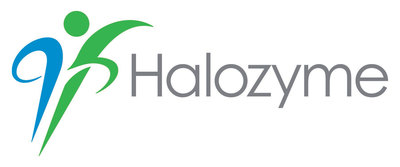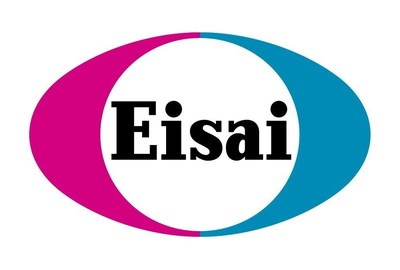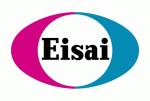SAN DIEGO and WOODCLIFF LAKE, N.J., Dec. 9, 2015 /PRNewswire/ -- Halozyme Therapeutics, Inc. (NASDAQ: HALO) and Eisai Inc. will present a scientific poster entitled, "Pegylated Recombinant Human Hyaluronidase PH20 (PEGPH20) Enhances Efficacy of Eribulin Mesylate (HALAVEN®) in Triple Negative Breast Cancer Xenografts" at the 38th Annual San Antonio Breast Cancer Symposium (SABCS) on Dec. 9.
The research showed the potential impact for PEGPH20-mediated hyaluronan (HA) removal on concentrations of eribulin and antitumor effects of breast cancer therapy in preclinical models. Halozyme's investigational new candidate drug, PEGPH20 targets the degradation of HA, a glycosaminoglycan or chain of natural sugars that may accumulate in certain tumors.
Halozyme, a biotechnology company developing novel oncology and drug-delivery therapies, and Eisai Co., Ltd., the parent company of Eisai Inc., announced a clinical collaboration in July 2015, with plans to initiate a phase 1b/2 clinical trial to evaluate PEGPH20 plus eribulin in first-line HER2-negative metastatic breast cancer patients with high-HA tumors.
"Our preclinical studies have revealed important data about the potential for PEGPH20 when used in combination of eribulin, and we are looking forward to expanding on these important preclinical findings when we initiate our clinical study with Eisai," said Dr. Helen Torley, president and CEO of Halozyme. "We remain encouraged by the potential for PEGPH20 to help patients across a range of cancer and therapy types. Our presentation today reflects the growing body of research supporting this potential of PEGPH20."
"Data presented today highlight a productive preclinical collaboration with Halozyme and support Eisai's commitment to address the unmet medical needs of patients with advanced breast cancer," said Alton Kremer, Deputy President, Oncology PCU and Chief Medical Officer, Global Oncology Business Unit, Eisai Inc. "We are encouraged by these preclinical data and look forward to enrolling patients in the clinical trial early next year."
SABCS Poster Presentation Details:
Poster Session:
P1-03-09, Wednesday, Dec. 9, 5:00 p.m. CT
About Eribulin Mesylate Injection (Available as HALAVEN® in the United States)
The above publication does not necessarily contain information that is consistent with the U.S. prescribing information for HALAVEN® (eribulin mesylate). It is an investigational use and there is no guarantee that this use will become available commercially.
HALAVEN® (eribulin mesylate) injection is indicated for patients with metastatic breast cancer who have received at least two chemotherapeutic regimens for the treatment of metastatic breast cancer. Prior therapy should have included an anthracycline and a taxane in either the adjuvant or metastatic setting. Eribulin is a synthetic analog of halichondrin B, a natural product that was isolated from the marine sponge Halichondria okadai. First in the halichondrin class, eribulin is a microtubule dynamics inhibitor with a distinct binding profile. Based on in vitro studies, eribulin exerts its effect via a tubulin-based antimitotic mechanism ultimately leading to apoptotic cell death after prolonged and irreversible mitotic blockage.
Important Safety Information
Neutropenia
- Monitor complete blood counts prior to each dose, and increase the frequency of monitoring in patients who develop Grade 3 or 4 cytopenias. Delay administration and reduce subsequent doses in patients who experience febrile neutropenia or Grade 4 neutropenia lasting longer than 7 days
- Severe neutropenia (ANC <500/mm3) lasting more than 1 week occurred in 12% (62/503) of patients. Patients with elevated liver enzymes >3 × ULN and bilirubin >1.5 × ULN experienced a higher incidence of Grade 4 neutropenia and febrile neutropenia than patients with normal levels
- Grade 3 and Grade 4 neutropenia occurred in 28% and 29%, respectively, of patients who received eribulin. Febrile neutropenia occurred in 5% of patients and two patients (0.4%) died from complications
Peripheral Neuropathy
- Patients should be monitored closely for signs of peripheral motor and sensory neuropathy
- Grade 3 peripheral neuropathy occurred in 8% of patients, and Grade 4 in 0.4% of patients who received eribulin. Delay administration of eribulin until resolution to Grade 2 or less
- Neuropathy lasting more than 1 year occurred in 5% of patients. Twenty-two percent of patients developed a new or worsening neuropathy that had not recovered within a median follow-up duration of 269 days (range 25-662 days)
- Peripheral neuropathy (5%) was the most common adverse reaction resulting in discontinuation
Pregnancy Category D
- Eribulin is expected to cause fetal harm when administered to a pregnant woman and patients should be advised of these risks
QT Prolongation
- In an uncontrolled ECG study in 26 patients, QT prolongation was observed on Day 8, independent of eribulin concentration, with no prolongation on Day 1. ECG monitoring is recommended for patients with congestive heart failure; bradyarrhythmias; concomitant use of drugs that prolong QT interval, including Class Ia and III antiarrhythmics; and electrolyte abnormalities
- Correct hypokalemia or hypomagnesemia prior to initiating eribulin and monitor electrolytes periodically during therapy. Avoid in patients with congenital long QT syndrome
Hepatic and Renal Impairment
- For patients with mild (Child-Pugh A) or moderate (Child-Pugh B) hepatic and/or moderate or severe (CrCl 15-49 mL/min) renal impairment, a reduction in starting dose is recommended
Most Common Adverse Reactions
- Most common adverse reactions (>25%) reported in patients receiving eribulin were neutropenia (82%), anemia (58%), asthenia/fatigue (54%), alopecia (45%), peripheral neuropathy (35%), nausea (35%), and constipation (25%)
- The most common serious adverse reactions reported in patients receiving eribulin were febrile neutropenia (4%) and neutropenia (2%)
For more information about HALAVEN®, click here for the full Prescribing Information.
About Halozyme
Halozyme Therapeutics is a biotechnology company focused on developing and commercializing novel oncology therapies that target the tumor microenvironment. Halozyme's lead proprietary program, investigational drug PEGPH20, applies a unique approach to targeting solid tumors, allowing increased access of co-administered cancer drug therapies to the tumor. PEGPH20 is currently in development for metastatic pancreatic cancer, non-small cell lung cancer, gastric cancer, metastatic breast cancer and has potential across additional cancers in combination with different types of cancer therapies. In addition to its proprietary product portfolio, Halozyme has established value-driving partnerships with leading pharmaceutical companies including Roche, Baxalta, Pfizer, Janssen and AbbVie for its drug delivery platform, ENHANZE™, which enables biologics and small molecule compounds that are currently administered intravenously to be delivered subcutaneously. Halozyme is headquartered in San Diego. For more information visit www.halozyme.com.
About Eisai Co., Ltd.
Eisai Co., Ltd. is a leading global research and development-based pharmaceutical company headquartered in Japan. We define our corporate mission as "giving first thought to patients and their families and to increasing the benefits health care provides," which we call our human health care (hhc) philosophy. With over 10,000 employees working across our global network of R&D facilities, manufacturing sites and marketing subsidiaries, we strive to realize our hhc philosophy by delivering innovative products in various therapeutic areas with high unmet medical needs, including oncology and neurology.
As a global pharmaceutical company, our mission extends to patients around the world through our investment and participation in partnership-based initiatives to improve access to medicines in developing and emerging countries. For more information about Eisai Co., Ltd., please visit www.eisai.com.
About Eisai Inc.
At Eisai Inc., human health care is our goal. We give our first thoughts to patients and their families, and helping to increase the benefits health care provides. As the U.S. pharmaceutical subsidiary of Tokyo-based Eisai Co., Ltd., we have a passionate commitment to patient care that is the driving force behind our efforts to help address unmet medical needs. We are a fully integrated pharmaceutical business with discovery, clinical, manufacturing and marketing capabilities. Our key areas of commercial focus include oncology and specialty care (Alzheimer's disease, epilepsy and metabolic disorders). To learn more about Eisai Inc., please visit us at www.eisai.com/US.
Eisai Inc. has affiliates that are part of a global product creation organization that includes R&D facilities in Massachusetts, New Jersey and Pennsylvania, as well as a global demand chain organization that includes facilities in Maryland and North Carolina. Eisai's global areas of R&D focus include neuroscience; oncology; metabolic disorders; vascular, inflammatory and immunological reaction; and antibody-based programs.
Safe Harbor Statement
In addition to historical information, the statements set forth above include forward-looking statements (including, without limitation, statements concerning the possible activity, benefits and attributes of PEGPH20, the possible method of action of PEGPH20, its potential application to improve cancer therapies and statements concerning future actions relating to the development of PEGPH20) that involve risk and uncertainties that could cause actual results to differ materially from those in the forward-looking statements. The forward-looking statements are typically, but not always, identified through use of the words "believe," "enable," "may," "will," "could," "intends," "estimate," "anticipate," "plan," "predict," "probable," "potential," "possible," "should," "continue," and other words of similar meaning. Actual results could differ materially from the expectations contained in forward-looking statements as a result of several factors, including unexpected expenditures and costs, unexpected results or delays in development of product candidates and regulatory review, regulatory approval requirements, unexpected adverse events and competitive conditions. These and other factors that may result in differences are discussed in greater detail in the Halozyme Quarterly Report on Form 10-Q filed with the Securities and Exchange Commission on November 9, 2015.
Media Inquiries: | |
Halozyme Therapeutics, Inc. | Eisai Inc. |
Jim Mazzola | Patricia Councill |
858-704-8122 | 201-746-2139 |
Investor Inquiries: | |
Eisai Inc. | |
Alex Scott | |
201-746-2177 | |


Logo - http://photos.prnewswire.com/prnh/20100302/LA63139LOGO
Logo - http://photos.prnewswire.com/prnh/20151208/294446LOGO
To view the original version on PR Newswire, visit:http://www.prnewswire.com/news-releases/halozyme-therapeutics-and-eisai-to-present-data-evaluating-the-antitumor-effects-of-pegph20-in-combination-with-eribulin-mesylate-in-preclinical-breast-cancer-models-300190249.html
SOURCE Halozyme Therapeutics, Inc.; Eisai Inc.

